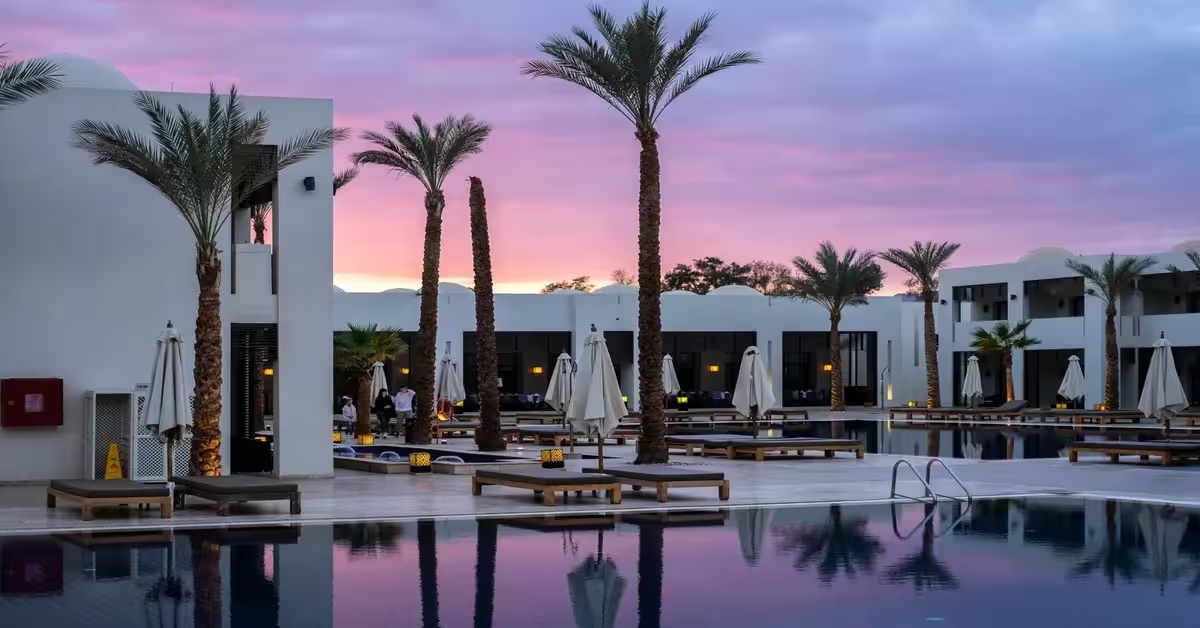Introduction: Hospitality Marketing is Changing
Hospitality is one of the most competitive industries in digital marketing. Whether you’re a local restaurant, boutique hotel, or wedding venue, your online presence can make or break your business.
But in 2025, it’s not enough to rank on Google. Travelers and customers are asking AI-powered assistants like ChatGPT, Gemini, and Perplexity questions such as:
- “What are the best farm-to-table restaurants near me?”
- “Where’s the top-rated boutique hotel in Austin?”
- “Which Nashville venues are best for corporate events?”
If your hospitality business isn’t optimized for AI search visibility, you risk missing out on high-value bookings. This is where AI SEO + custom web development come in—helping you stand out across search engines, review sites, and AI-driven recommendations.
What is AI SEO for Hospitality?
AI SEO ensures that your restaurant, hotel, or venue doesn’t just appear in Google, but also shows up when customers ask AI tools for personalized recommendations.
Why this matters for hospitality:
- Travelers use AI to plan trips. Instead of sifting through endless websites, they ask AI tools for curated suggestions.
- Local intent dominates. Customers almost always include a location (city, neighborhood, or “near me”).
- Trust drives bookings. AI platforms rely heavily on reviews, reputation, and online presence to rank results.
In short: your business must appear credible, local, and guest-friendly in order to win in AI-driven search.
Why Web Development is Crucial for Hospitality
Even with great visibility, a poor website can turn away potential customers. Hospitality websites need to be fast, mobile-optimized, and built for conversions.
Key features that matter most:
- Mobile-First Design: Most bookings and restaurant searches happen on mobile.
- Visual Storytelling: Stunning photography and video to capture the experience.
- Seamless Booking Systems: Reservation and event booking integrations.
- Clear Menus & Service Pages: Guests expect easy-to-find details.
- Multi-Language Support: Especially for hotels and event venues attracting international clients.
- Schema Markup: Structured data for menus, reviews, events, and accommodations that AI tools rely on.
Core Components of AI SEO for Restaurants, Hotels, and Venues
1. Local SEO & Google Business Profile
For hospitality, local search is king. We optimize:
- Google Business Profiles with menus, services, amenities, and booking links.
- Local citations on platforms like Yelp, TripAdvisor, OpenTable, and Booking.com.
- “Near me” keyword strategies to match conversational AI searches.
2. Reputation & Review Management
AI tools heavily weigh guest reviews in their recommendations. We help businesses:
- Generate more reviews from satisfied guests.
- Manage responses to both positive and negative reviews.
- Showcase testimonials directly on websites.
3. AI-Optimized Content
Content must not only serve Google, but also answer AI-driven queries. This includes:
- Restaurant Blogs: “Top 10 Romantic Dinner Spots in Austin.”
- Hotel Guides: “Best Things to Do in Nashville for Business Travelers.”
- Venue Resources: “How to Choose the Perfect Wedding Venue in Texas.”
- FAQ Hubs: Addressing guest concerns like check-in policies, event capacity, or dietary options.
4. Technical SEO & Hospitality Web Development
We ensure your site is:
- Lightning-fast and mobile-ready. Guests won’t wait for slow pages.
- Structured with schema markup (menus, events, accommodations).
- Integrated with booking/reservation platforms.
- Optimized for conversions with clear CTAs like “Book a Table” or “Reserve Your Room.”
Example Scenarios
- Restaurants: Appear in ChatGPT when someone asks “Best Italian restaurants near me with gluten-free options.”
- Hotels: Rank in Gemini when a traveler asks “Boutique hotels in San Antonio with free parking and breakfast.”
- Event Venues: Be listed when someone searches “Corporate event venues in Nashville for 200 people.”
Case Study: Why Hospitality Brands Need AI SEO
Imagine two competing restaurants:
- Restaurant A has a modern, SEO-optimized website, strong reviews, and clear schema markup.
- Restaurant B has a dated site, inconsistent info, and poor online visibility.
When someone asks ChatGPT “best seafood restaurants in Miami,” AI tools will almost always recommend Restaurant A because it looks credible, verified, and well-reviewed online.
The same applies to hotels and venues—your digital presence is your first impression.
Benefits of Partnering with Social Link for Hospitality Marketing
- Full-Service Approach: SEO, web development, paid ads, and social media.
- Hospitality Expertise: We know how guests search, book, and choose.
- AI SEO Pioneers: We future-proof your visibility for AI-driven search.
- Conversion Focus: More website visits that turn into real reservations, bookings, and events.
FAQs
Do travelers really use AI for trip planning?
Yes. In 2025, nearly 40% of travelers report using AI tools to plan their trips, choose hotels, and select restaurants.
What’s different about AI SEO vs traditional SEO?
AI SEO prioritizes trust signals like reviews, credibility, and structured content—beyond just keyword rankings.
How quickly can hospitality businesses see results?
Many restaurants and hotels see increased bookings and reservations within 90 days of AI SEO and web development improvements.
Call to Action: Free Hospitality AI SEO Audit
Is your hospitality business showing up when people ask AI tools for recommendations?
Schedule a free audit with Social Link today. We’ll show you:
- Where your restaurant, hotel, or venue currently ranks.
- How AI tools are interpreting your online presence.
- What fixes and optimizations will bring you more bookings.


